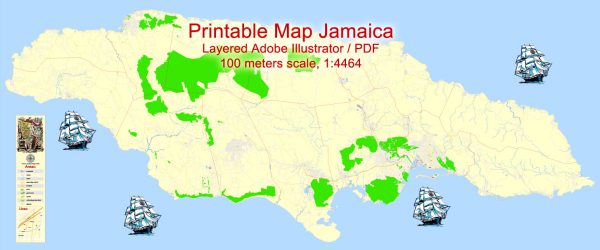Jamaica has a rich and complex political history that spans several centuries. Here is an overview of Jamaica’s political history:
- Colonial Era:
- 1494: Christopher Columbus arrived in Jamaica during his second voyage to the Americas. The island was inhabited by the indigenous Arawak people.
- 1509: The Spanish established a colony on the island.
- 1655: The English captured Jamaica from the Spanish during the Anglo-Spanish War. Jamaica became a British colony.
- Slavery and Plantation Economy:
- Jamaica’s economy during the 17th and 18th centuries relied heavily on sugar and other plantations.
- The labor force on these plantations consisted primarily of enslaved Africans who were brought to Jamaica through the transatlantic slave trade.
- Abolition of Slavery:
- Slavery was abolished in Jamaica in 1834, leading to the gradual emancipation of enslaved people.
- Transition to a Crown Colony:
- In 1866, Jamaica transitioned from a colony governed by the British West Indies Federation to a crown colony with its own government and legislature.
- Rise of Nationalism:
- In the early 20th century, Jamaican nationalism began to take root, and calls for self-government and independence grew.
- Prominent figures like Marcus Garvey and Norman Manley played key roles in advancing the cause of Jamaican nationalism.
- Independence:
- Jamaica gained independence from Britain on August 6, 1962, becoming a member of the Commonwealth of Nations. Alexander Bustamante became the country’s first Prime Minister.
- Post-Independence Politics:
- Jamaica has a two-party system with the Jamaica Labour Party (JLP) and the People’s National Party (PNP) as the dominant political parties.
- Michael Manley and Edward Seaga were influential political figures who led the country at various times.
- Political Developments:
- Jamaica has experienced political stability, but it has also faced challenges, including issues related to crime, economic inequality, and poverty.
- The country has seen changes in leadership between the JLP and PNP, with elections determining the ruling party.
- Modern Politics:
- In recent years, Jamaica has faced various issues, such as debt management, crime reduction, and economic development.
- The country continues to grapple with issues related to social justice, human rights, and environmental sustainability.
- International Relations:
- Jamaica is an active participant in regional and international organizations like the Caribbean Community (CARICOM), the Organization of American States (OAS), and the United Nations.
Throughout its history, Jamaica has made significant contributions to the global cultural landscape through its music, including reggae, and the iconic figure of Bob Marley. The country’s political history reflects its journey from colonization and slavery to independence and self-determination, with its people striving to address ongoing challenges and opportunities.


 Author: Kirill Shrayber, Ph.D. FRGS
Author: Kirill Shrayber, Ph.D. FRGS